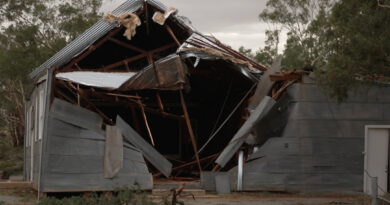Industry Experts Warn that South Africa Bears High Costs for China’s Inexpensive Steel
According to industry experts, the current tariffs are inadequate to protect local steel industries, leading to an influx of low-cost Chinese products into the market.
Recently, one of the world’s largest steel manufacturers, ArcelorMittal, announced its decision to cease operations in South Africa. The impact of cheap imports from China is now being felt in Africa, with steel sector analysts predicting a potential loss of 100,000 jobs in the region. This unemployment crisis would worsen the existing 32 percent unemployment rate in the country.
Irvin Jim, leader of South Africa’s National Union of Metalworkers, expressed concerns about China’s excessive steel production and subsequent dumping of surplus steel in global markets. This practice has led to a decline in market share for local manufacturers, resulting in factory closures and layoffs.
CEO of ArcelorMittal South Africa, Kobus Verster, stated that producing steel in South Africa is no longer profitable due to various factors, including China’s actions that have led to losses for steel producers worldwide.
China’s continued high levels of steel exports have driven global steel prices down, significantly impacting the industry. Despite challenges, China remains the world’s top steel producer, exceeding a billion tons of steel production annually.
China has denied accusations of steel dumping, attributing the situation to Western protectionism. The country insists that its economic success is based on competitive pricing driven by mass manufacturing and market forces.
Despite government efforts, local manufacturers struggle to compete with cheap Chinese steel imports. African countries lag behind in implementing effective measures against Chinese steel dumping compared to other regions like the US, Canada, and Europe.
Egypt has imposed a temporary import tariff on Chinese steel, while South Africa has a duty of over 35 percent on certain steel products. However, the tariffs do not fully address the impact of Chinese imports on the local steel industry due to political and economic considerations.
Industry experts emphasize the urgent need for stricter anti-dumping measures and higher tariffs on Chinese steel imports to protect local steel industries and safeguard jobs. The closure of ArcelorMittal poses a significant threat to manufacturing sectors in Southern Africa, with potential disruptions in supply chains and rising costs for specialized steel products.
Collaboration between stakeholders and decisive action from governments are required to address the challenges posed by Chinese steel imports and ensure the sustainability of local steel industries in Africa.



